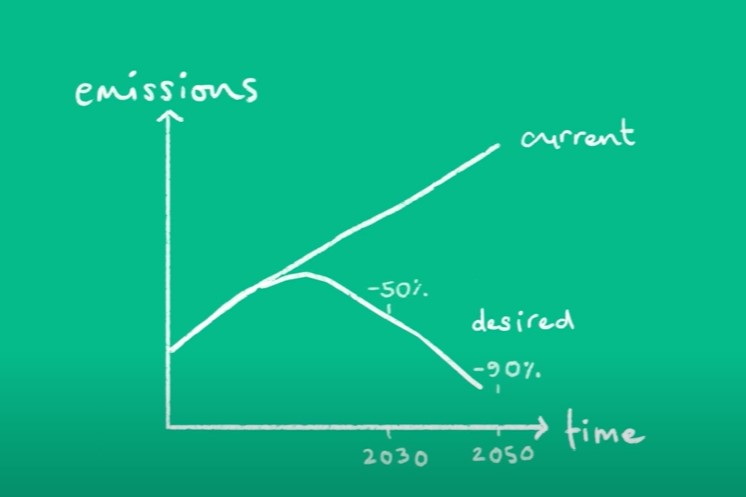Neglecting climate change at our peril
The 28th UN Climate Change conference (COP28), held in Dubai at the end of 2023, may have been overlooked by many with thoughts of Christmas and summer, but it’s an important annual event with plenty of implications for New Zealand businesses. I attended, representing Toitū Envirocare, New Zealand's leading carbon certification provider, and our hundreds of clients.
With 85,000 delegates, including politicians, diplomats, regulators, businesspeople and NGO representatives from nearly 200 countries, COP28 proved addressing climate change is a massive global concern that New Zealand neglects at its peril. This, the first of four articles from Toitū Envirocare on carbon and sustainability trends and their impact on business, explains the current climate-change landscape.
The call for transition from fossil fuels
The agreement hammered out at the end of the conference (dubbed ‘the UAE Consensus’) was historic because this was the first COP to recognise the need to transition from fossil fuels.
Other key messages from the agreement were:
- We must not give up on the Paris Agreement’s goal to keep the rise in mean global temperature to 1.5°C
- Decisive action is needed to address the accelerating pace of climate change
- Scientific input must be heeded, especially from the World Meteorological Office
- More adaptation finance is required to enable a transition to lower emissions and a more resilient future world
- To triple renewable energy capacity and double energy efficiency improvements by 2030.
The market drives reform, not regulators
Another conference theme was the leading role businesses play. The climate change reforms required of Kiwi businesses will increasingly be driven by the market rather than regulators. This is because the speed at which governments move is restricted by the mood of the electorate, whereas business is not held back by this and can move faster.
Companies buying New Zealand goods and services are also demanding action from their supply chain, which means our exporters and their SME suppliers nationwide. Conscious consumers are also demanding their product and service providers are sustainable and ethical. One of the most straightforward ways for companies to demonstrate this is by measuring and certifying their carbon emissions. The sooner you do this the better, because it’s a three-month process and you don’t want to be caught unprepared if there’s a public outcry.
Availability of finance for fossil-fuel-based businesses is another consideration. The International Energy Agency says the world’s consumption of fossil fuels peaked last year. As the cost of renewable energy decreases, there is likely to be reduced demand for fossil fuels, so investors will not want to risk putting their money into potentially stranded assets.
Another theme I took away from COP28 is that you can’t separate climate and nature. While there is a focus now on compulsory climate-related financial disclosures for big New Zealand financial institutions and listed companies, I believe nature-related financial disclosures will soon be important as well. This will cover the risks and opportunities from and between businesses and nature, including loss of biodiversity and degradation of ecosystems.
Business-friendly standards
One carbon-certification challenge is the ‘alphabet soup’ of acronyms and jargon that accompanies the process. However, great news from COP28 was the International Sustainability Standards Board’s and the International Organisation for Standardisation (ISO) commitment to align global sustainability reporting. Since Toitū’s carbon-certification programme is anchored in ISO 14064 and our enviromark programme is based on ISO 14001, we align closely with these global standards, so our clients can be confident they are on the right track.
Another big announcement was four key organisations – the Voluntary Carbon Market Integrity Initiative, the Science Based Targets initiative, the Greenhouse Gas Protocol and the Integrity Council for the Voluntary Carbon Market – agreed to establish a framework to provide consistent guidance on decarbonisation, including the use of carbon credits to offset residual emissions. These alignments will become an agreed language. It took hundreds of years to agree international standards for financial accounting, but we don’t have that time to develop and iterate standards to avoid climate change.
We need quicker action
The conference also included discussion of the latest climate science from the International Panel on Climate Change which concluded that global warming of 1.5°C and 2°C will be exceeded during this century unless there are immediate, rapid and large-scale reductions in greenhouse gas emissions. Our planet has already warmed by more than 1.1°C, even more in the polar regions.
The resounding catch cry from COP28 was ‘later is too late’. So what will the healthcare industry do – neglect to act, or act with intent?

Dr Belinda Mathers is Toitū Envirocare’s chief science and advisory officer. She oversees Toitū’s work to ensure it keeps on top of scientific research, changes in best practice and business needs. With more 20 years in the climate change, environmental engineering and auditing fields, she specialises in the assessment, verification and reduction of climate and environmental impacts.
























